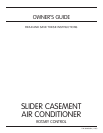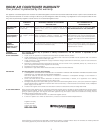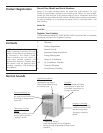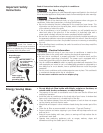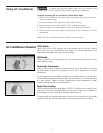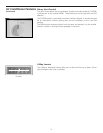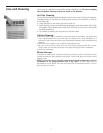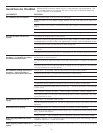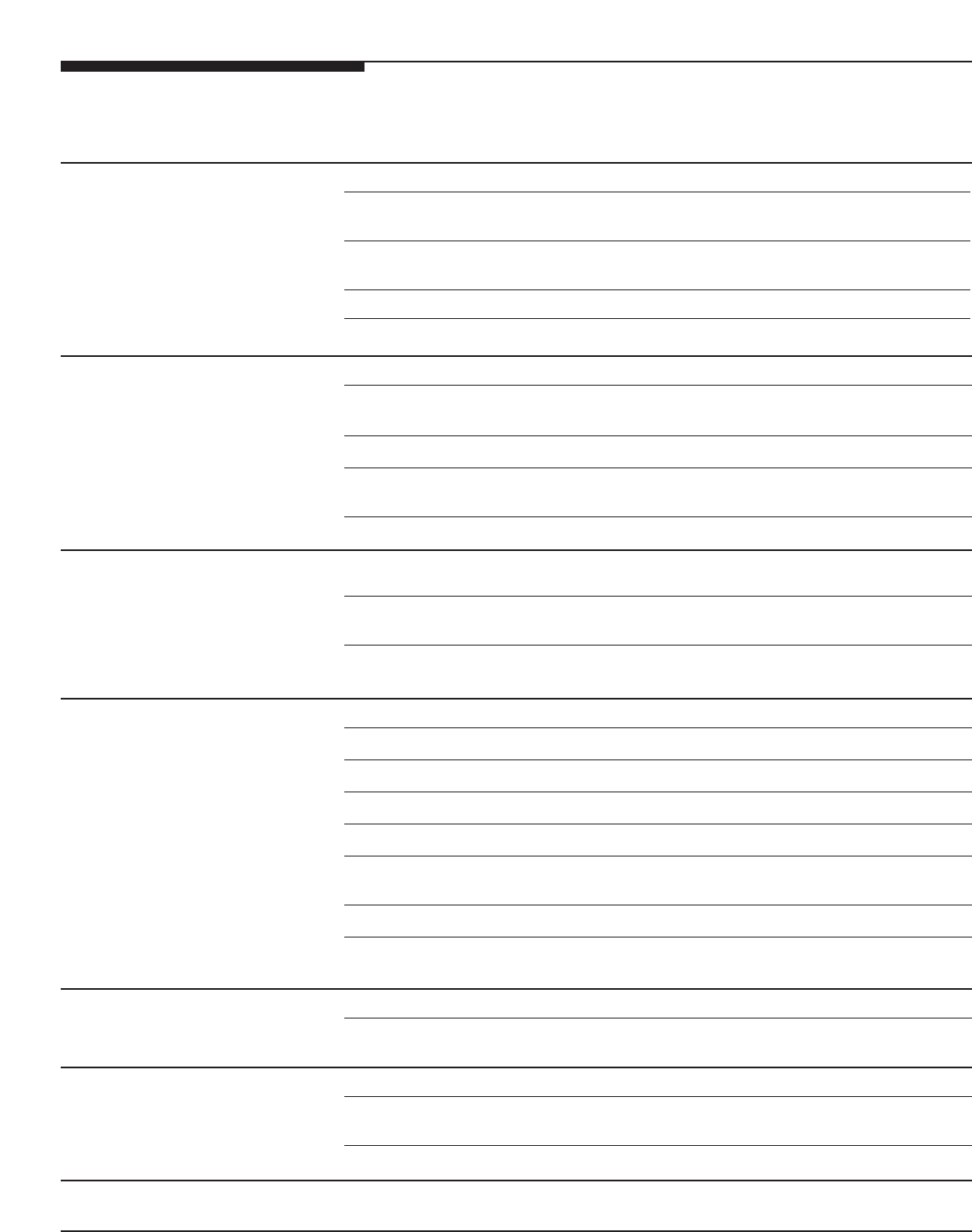
8
Avoid Service Checklist
OCCURRENCE SOLUTION
Before calling for service, review this list. It may save you time and expense. This
list includes common occurrences that are not the result of defective workman-
ship or materials in this appliance.
Air conditioner will not operate. Wall plug disconnected. Push plug firmly into wall outlet.
House fuse blown or circuit breaker tripped. Replace fuse with time delay type or reset circuit
breaker.
Selector Control in OFF position. Turn selector to ON (some models) or the desired FAN or COOL
setting.
Unit turned off and then on too quickly. Turn unit off and wait 3 minutes before restarting.
Thermostat set too low. Adjust thermostat to higher number for cooling.
Air from unit does not feel cold
enough.
Turn selector to a higher FAN or COOL position
Thermostat set too warm. Set thermostat to colder temperature.
Room temperature below 70°F (21°C). Cooling may not occur until room temperature rises above
70°F (21°C).
Temperature sensing tube touching cold coil, located behind air filter. Straighten tube away from coil.
Air conditioner cooling, but room is
too warm — ice forming on cooling
coil behind decorative front.
Outdoor temperature below 70°F (21°C). To defrost the coil, set selector to FAN position. Then,
set thermostat to warmer position.
Air filter may be dirty. Clean filter. Refer to Care and Cleaning section. To defrost, set selector to
FAN.
Thermostat set too cold for night-time cooling. To defrost the coil, set selector to a FAN position.
Then, set thermostat to a warmer position.
Air conditioner cooling, but room is
too warm — NO ice forming on
cooling coil behind decorative front.
Dirty air filter — air restricted. Clean air filter. Refer to Care and Cleaning section.
Thermostat set too warm. Turn thermostat clockwise to a colder setting.
Thermostat set on low number. Turn thermostat to higher number.
Vent set at OPEN position. Set vent at CLOSED position for maximum cooling.
Air directional louvres positioned improperly. Position louvres for better air distribution.
Front of unit is blocked by drapes, blinds, furniture, etc. — restricts air distribution. Clear blockage
in front of unit.
Doors, windows, registers, etc. open — cold air escapes. Close doors, windows, registers, etc.
Unit recently turned on in hot room. Allow additional time to remove “stored heat” from walls,
ceiling, floor and furniture.
Air conditioner turns on and off
rapidly.
Dirty air filter — air restricted. Clean air filter.
Outside temperature extremely hot. Set FAN on high speed to bring air past cooling coils more
frequently.
Water dripping INSIDE when unit is
cooling.
Improper installation. Tilt air conditioner slightly to the outside to allow water drainage. Refer to
installation instructions — check with installer.
Water dripping OUTSIDE when unit is
cooling.
Unit removing large quantity of moisture from humid room. This is normal during excessively
humid days.
Noise when unit is cooling. Air movement sound. This is normal. If too loud, turn selector to lower FAN setting.
Sound of fan hitting water-moisture removal system. This is normal when humidity is high. Close
doors, windows and registers.
Window vibration — poor installation. Refer to installation instructions or check with installer.
Compressor turned off by moving thermostat from a higher number to a lower number and then
immediately back to a higher number. Wait approximately 3 minutes. Listen for compressor to start.



